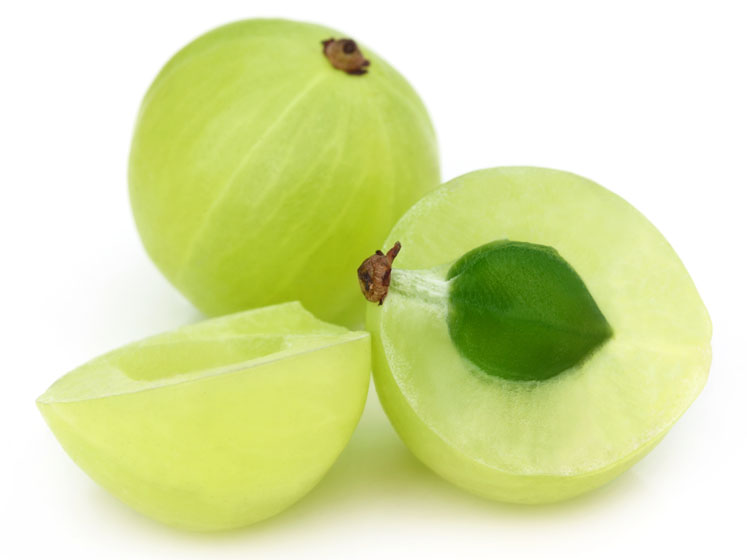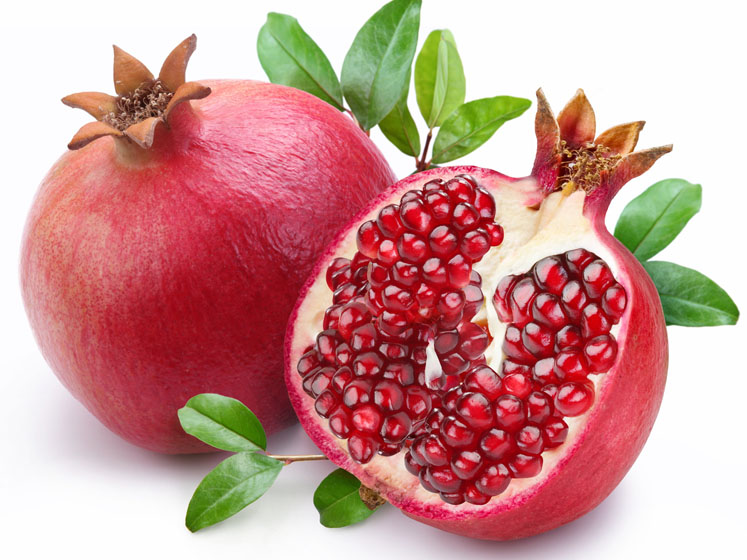Immunity is one of our main lines of biological defence; the immune system is mobilised to fight infection, contagious diseases and/or any undesirable biological intrusion. And although consumers are convinced that taking food supplements is very important for maintaining a healthy lifestyle, they also believe that natural-origin ingredients are healthier than the synthetic ones.
Inspired by Ayurveda, Vidya Herbs promotes the use and application of traditional medicinal plants through modern science. The company offers a complete range of plant extracts that are dedicated to immunity and the associated factor related to epidemics.
Turmeric: Curcuma longa Curcumin, recognised for its anti-inflammatory properties, is proven to be a potent immunomodulatory agent that also enhances antibody responses.1,2 Curcumin has demonstrated in vivo antivirus activities against dengue, influenza A, hepatitis B and herpes simplex viruses.3–6
Vidya Herbs offers a wide range of turmeric extracts as powder, granules, microbeads, oils, emulsions, etc. The standard one contains 95% curcuminoids. A bioavailability enhanced Vi-Active variety is also proposed. All our turmeric extracts are available in organic (ECOCERT certification) quality.
Kalmegh: Andrographis paniculata
Andrographolides, the active principles of Andrographis paniculata, seem to be able to upregulate human β-defensin-2, which is an inducible antimicrobial peptide that plays an important role in innate immunity.7
Different types of Andrographis paniculata extracts have demonstrated viricidal activities against herpes simplex virus, Epstein-Barr virus and/or influenza.1 It has also been shown that andrographolides and certain derivatives display anti-HIV activity in vitro.8
In addition, Andrographis paniculata shortened the duration of coughs, sore throats and sick leave/time to complete resolution when compared with standard care. Vidya Herbs offers natural, non-synthetic Andrographis paniculata extracts at andrographolide concentrations of 5–30%.
Tulsi: Ocimum sanctum
The immunomodulatory action of Tulsi has been assessed in a randomised, double-blind trial that showed that an alcohol-derived extract modulates immunity by improving markers such as IFN-γ and IL-4 levels, T-helper and NK cells.9
Tulsi extracts have also been positively clinically tested against viral encephalitis and hepatitis.10 Vidya Herbs manufactures Tulsi leaf extracts that are standardised at 2.5% ursolic acid in powder, granule or microbead forms. Tulsi extracts are available in organic (ECOCERT certification) quality.
Amla: Emblica officinalis
The bioactive tannins and polyphenols responsible for the immunomodulatory properties of Amla have been demonstrated to regulate the immune system via various mechanisms, such inhibiting the NF-κB signalling pathway and enhancing the activities of NK cells and cytotoxic T lymphocytes.11

The in vitro antiviral activity of Amla showed inhibitory potential against coxsackievirus, herpes simplex (HSV) 1 and 2, influenza and HIV reverse transcriptase enzyme.12 Vidya Herbs extracts tannins and vitamin C (which is directly implicated in the immune system) from Amla. Amla extracts are also available in organic (ECOCERT certification) quality.
Kothala himbutu: Salacia reticulata
Salacia reticulata extracts are used to prevent or treat diabetes by inhibiting sugar absorption. However, this Ayurvedic plant exerts a more specific immune activity; in a human trial, it has been demonstrated that Salacia reticulata can change the gene expression of peripheral blood cells.
It also managed a shift toward a younger intestinal microbiota, reinforcing the intestinal barrier and enhancing its ability to resist and control pathogens.13 The antiviral activity of Salacia reticulata has been demonstrated in H1N1-infected mice.14 For Salacia reticulata, Vidya Herbs offers an extract that is standardised at 20% tannins.
Ashwagandha: Withania somnifera
Withania somnifera stimulates the immune system by enhancing the proliferation of T lymphocytes and increasing NK cell activity, both of which are responsible for killing pathogens.15
Ashwagandha is also known as an anxiolytic that could be very useful during pandemic stress.16 Vidya Herbs developed Viwithan, which has been clinically studied for its adaptogen properties and offers a range of extracts from 2.5–5% withanolides. Ashwagandha extracts are also available in organic (ECOCERT certification) quality.
The bioenhancers
Another class of interesting plant extracts is the bioenhancers. Ginger and Piper longum have long been used in many Ayurvedic formulations because of their ability to increase the assimilation of active principles.
In addition, Piper longum also demonstrates viricidal and antidepressant-like activities, whereas ginger also possesses antiviral potential. Vidya Herbs offers Piper longum extract titrated at 95% piperine and a ginger extract with 2–5% gingerols in powder, granule or microbead forms. Ginger extract is also available in organic (ECOCERT certification) quality.
Minerals and trace elements: iron (Fe)
Iron is one of the most popularly consumed minerals, particularly among women. The European Commission officially recognises that iron contributes to a normal immune system function. Curry leaves (Murraya koenigii), commonly called “curry patta,” is a very well-known Indian medicinal plant that also boasts a characteristic flavour.
Vidya Herbs is able to extract the iron from Curry leaves (standardised at 3%) to deliver 100% of the recommended daily intake (RDI) in a dose of less than 500 mg. This ingredient is available in organic (ECOCERT certification) quality. One must not forget that vitamin C, which is also officially recognised by the European Commission, increases iron absorption.

Selenium (Se)
The European Commission further acknowledges that selenium, a very popular mineral, contributes to normal immune system function. Selenium deficiency weakens our defences against infectious diseases by reducing selenoprotein expression.17
Selenium supplementation results in increased lymphocyte counts, whereas high Se levels may offer some protection against HIV-1. Evidence suggests that Se supplementation may benefit an ageing immune system.18
Using a combination of soil-based cultivation and appropriately gentle technologies, Vidya Herbs obtains a 0.5% selenium extract from Indian mustard (Brassica juncea), which ensures 100% of the RDI in less than 20 mg. This ingredient is available in organic (ECOCERT certification).
Zinc (Zn)
The European Commission officially recognises that zinc contributes to the normal functioning of the immune system. The in vitro inhibitory effect of three zinc salts on the replication of respiratory syncytial virus (RSV) has been determined.
The results showed that zinc mediates antiviral activity against RSV by altering the ability of the cell to support RSV replication.19 Guava (Psidium guajava) is well known for its fruits. However, Vidya Herbs uses guava leaves to produce a 4% zinc powder ingredient. The RDI could be reached with less than 300 mg. This ingredient is available in organic (ECOCERT certification) quality.
Vitamins
It is well known that vitamin C (ascorbic acid) is essential during the winter months to boost our immune system. Vitamin C contributes to our immune defences by supporting our immune cells in different ways: it accumulates in cells and increases their capacity to respond.
Vidya Herbs provides an extract of amla (Emblica officinalis) that’s standardised at 15% vitamin C. Consuming approximately 530 mg per day of this extract will deliver the RDI of vitamin C. This ingredient is available in organic (ECOCERT certification) quality.
The B6 vitamin pyridoxin is also recognised in Europe to be necessary to support the immune system. By extracting a combination of guava, lemon and Holy Basil, a vitamin B complex has been developed that contains vitamins B6, B1, B2, B3, B5, B7 and B9, and provides the B6 RDI in 200–1000 mg.
Aggravating cofactors
COVID-19 taught us that cofactors such as being overweight, obese or having diabetes could worsen the consequences of viral infection. To help people cope with these metabolic factors, Vidya Herbs also recommends ingredients such as SUNCA (clinically demonstrated weight loss), Banaba (diabetes, rhinovirus) or even Terminalia bellirica, which is often used to fight anxiety and possesses immunity boosting activities.
Vidya Herbs also offers ingredients such as CGA-7, a green coffee extract with a full profile of chlorogenic acids (CGAs). Low in caffeine and benefiting from naturally occurring antioxidants, CGA-7 contributes to general well-being, protects the body from oxidative damage and helps with weight management — as demonstrated in clinical studies.
Conclusion
With a complete portfolio of dedicated ingredients that has been validated by historical use and modern science, Vidya Herbs helps consumers to establish a first line of defence by stimulating the immune system and reducing aggravating cofactors.
With its complete range of totally traceable and guaranteed botanical ingredients, Vidya Herbs provides alternative natural solutions to formulators and enables them to develop efficient products that benefit their consumers.
References
- G.C. Jagetia and B.B. Aggarwal, “Spicing Up of the Immune System by Curcumin,” Journal of Clinical Immunology 27(1), 19–35 (2007).
- M. Catanzaro, et al., “Immunomodulators Inspired by Nature: A Review on Curcumin and Echinacea,” Molecules 23(11), 2778 (2018).
- M. Ichsyani, et al., “Antiviral effects of Curcuma longa L. Against Dengue Virus In Vitro and In Vivo,” IOP Conference Series: Earth and Environmental Science 101(1), 012005 (2017).
- T.T. Dao, et al., “Curcuminoids from Curcuma longa and Their Inhibitory Activities on Influenza A Neuraminidases,” Food Chemistry 134(1), 21–28 (2012).
- H.J. Kim, et al., “Antiviral Effect of Curcuma longa Linn Extract Against Hepatitis B Virus Replication,” Journal of Ethnopharmacology 124(2), 189–96 (2009).
- S.B. Kutluay, et al., “Curcumin Inhibits Herpes Simplex Virus Immediate-Early Gene Expression by a Mechanism Independent of p300/CBP Histone Acetyltransferase Activity,” Virology 373(2), 239–247 (2008).
- Z.J. Shao, et al., “Andrographolide Exerted its Antimicrobial Effects by Upregulation of Human β-Defensin-2 Induced Through p38 MAPK and NF-κB Pathway in Human Lung Epithelial Cells,” Can. J. Physiol. Pharmacol. 90(5), 647–653 (2012).
- O. Churiyah, et al., “Antiviral and Immunostimulant Activities of Andrographis paniculata,” HAYATI Journal of Biosciences 22(2), 67–72 (2015).
- S. Mondal, et al., “Double-Blinded Randomised Controlled Trial for Immunomodulatory Effects of Tulsi (Ocimum sanctum Linn.) Leaf Extract on Healthy Volunteers,” J. Ethnopharmacol. 136(3), 452–456 (2011).
- N. Jamshidi and M.M. Cohen, “The Clinical Efficacy and Safety of Tulsi in Humans: A Systematic Review of the Literature,” Evid. Based Complement. Alternat. Med. (2017): doi: 10.1155/2017/9217567.
- I. Jantan, et al., “An Insight into the Modulatory Effects and Mechanisms of Action of Phyllanthus Species and Their Bioactive Metabolites on the Immune System,” Front. Pharmacol. 10, 878 (2019): doi: 10.3389/fphar.2019.00878.
- S.K. Khurana, et al., “Emblica officinalis (Amla) with a Particular Focus on its Antimicrobial Potentials: A Review,” J. Pure Appl. Microbiol. 13(4), 1995–2012 (2019).
- Y. Oda, et al., “Improvement in Human Immune Function with Changes in Intestinal Microbiota by Salacia reticulata Extract Ingestion: A Randomised Placebo-Controlled Trial,” PLoS ONE 10(12): e0142909 (2015).
- G.A. Romero-Pérez, et al., “Orally Administered Salacia reticulata Extract Reduces H1N1 Influenza Clinical Symptoms in Murine Lung Tissues Putatively Due to Enhanced Natural Killer Cell Activity,” Front. Immunol. 7, 115 (2016).
- J. Bhat, et al., “In Vivo Enhancement of Natural Killer Cell Activity through Tea Fortified with Ayurvedic Herbs,” Phytotherapy Research 24, 129–135 (2010).
- D. Langade, et al., “Efficacy and Safety of Ashwagandha (Withania somnifera) Root Extract in Insomnia and Anxiety: A Double-blind, Randomised, Placebo-controlled Study,” Cureus 11(9), e5797 (2019).
- O.M. Guillin, et al., “Selenium, Selenoproteins and Viral Infection,” Nutrients 11(9), 2101 (2019).
- P.R. Hoffmann and M.J. Berry, “The Influence of Selenium on Immune Responses,” Mol. Nutr. Food Res. 52(11), 1273–1280 (2008).
- R.O. Suara and J.E. Crowe, Jr, “Effect of Zinc Salts on Respiratory Syncytial Virus Replication,” Antimicrob. Agents Chemother. 48(3), 783–790 (2004).




